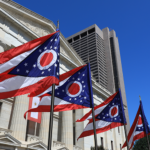It isn’t often I agree with Washington State Superintendent of Public Instruction Randy Dorn – a former union executive. But on the Nov. 17, Dorn took a step I can’t help but applaud when he called attention to the illegal actions of school districts all across the state.
The “elephant in the room” for education is that allowing unions to steal levy funds from student services to be used for employee raises is manifestly illegal.
The Washington Education Association is wealthy, powerful and aggressive. In a word, they are scary. The dues collection industry has one primary goal – improving the work arrangement of those paying more than $1,000 a year in dues.
Everyone else in the system is “anti-public education” if they mention that plundering the resources for wage increases is an action that steals services, materials and safe facilities from children.
Historically, lawmakers knew this danger of union negotiations hijacking education funds. To assure adequate funding for basic education and to guard against unions diverting education dollars to wage increases, the state adopted a statutory salary schedule.
And they adopted a ban on local negotiations on wage matters.
In 1981, the ban on negotiations impacting salary was adopted.
In 1987, the union urged lawmakers to create a loophole for only some specific wage enhancements. Lawmakers relented, and wages in excess of the state salary schedule could only be allowed for a single year, and when necessary to compensate additional time, additional responsibilities, or for a particular incentive.
The law today is RCW 28A. 400.200.
The practice today, however, is blatant disregard for the ban on salary negotiations. In the last round of bargaining, WEA set goals that contract negotiators seek 5 percent per year in illegal local salary increases. Then they facilitated illegal strikes when those demands weren’t met.
They get paid for improving wages, and they are obligated to work on the issue in spite of education-based increases, longevity increases and a state-provided COLA.
Their work is to make sure materials for children, maintenance for their buildings and local program priorities get funded only after large and escalating raises for dues-payers are assured. Freedom Foundation research documents that some districts use more than a third of their levies to fund union demands for higher wages for the same (or less) work.
And the Freedom Foundation has called “Foul!” over and over and over and over and over and over and over again. The union is damaging services to children and blaming underfunding on a Legislature that consistently increases education spending.
The Freedom Foundation has even undertaken to document the hundreds of millions of dollars used for pay raises without an additional service provided to students. “Grading the Teachers Union Contracts” displays these raises and other ways compensation is enhanced in spite of a law prohibiting such salary negotiations.
Now our concern for this unhealthy and illegal practice has a new ally.
Superintendent Randy Dorn.
This week he put a spotlight on the elephant in the room by asking the State Attorney General to specify that local negotiated wage enhancements are illegal.
He asked the Attorney General to issue an opinion about “whether school district boards of directors are authorized to use local M&O excess levies for compensation pursuant to both Article IX of the Constitution and RCW 28A.400.200(4). I believe they are not.”
Already the stakeholders of the education system are closing ranks to object to such a rude insinuation. The Washington Association of School Administrators (WASA) issued a statement objecting to Dorn’s question. It may be worth noting that administrator wages are also heavily enhanced by local levy funds, although no law prohibits this practice.
Rather than suggest the WEA has been too successful in getting members interest prioritized above all others, the administrators association put the blame on the legislature. Evidently, the Legislature should have been funding everything a union could want plus everything else each and every year.
The law limiting salary negotiations, however, was an acknowledgement of the unending appetite of union negotiators who are merely doing their job. Even if the legislature doubled the wages of all school employees in the next legislative session, the unions would be duty-bound to ask for more the following year.
A law like RCW 28A.400.200, ending unions ability to negotiate for compensation, would be necessary in any event. In fact, the state’s own Basic Education Finance Task Force already recommended such a prohibition.
Superintendent Dorn is cutting to the eventual chase, and asking for the imposition of these sideboards.










